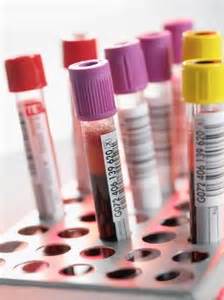 I have previously posted about the increasing number of cases the Kansas DUI defense community is seeing regarding DUI for drugs. Law enforcement and prosecutors typically attempt to lend credibility to DUID charges by using a highly contestable combination of blood tests and drug recognition “experts.”
I have previously posted about the increasing number of cases the Kansas DUI defense community is seeing regarding DUI for drugs. Law enforcement and prosecutors typically attempt to lend credibility to DUID charges by using a highly contestable combination of blood tests and drug recognition “experts.”
Many DUIs remain strictly alcohol-related due to the fact that blood-alcohol concentrations (BAC) can be determined much easier and cheaper using breathalyzer tests done on machines kept at the police station or jail, as opposed to blood tests which require driving to a hospital, getting a nurse to draw the blood, sending the blood to the lab and waiting a couple of months for the result. When alcohol alone is suspected, blood tests are only reserved for those times in which there is an accident and the driver is going to the hospital anyway or when blood is being taken pursuant to a search warrant. A drug-related DUI is different. For now at least, there is no breath test that can determine the presence of drugs in a person’s system. When a driver is suspected of driving under the influence of drugs, the officer will usually want a blood or urine test.
These blood samples -whether for alcohol or drugs, must be challenged by the defense before their inadequacies can come to light.
Key Strategies to Fight DUI Blood Tests
First, understand that fighting may often be the better position to take in any DUI or DUID charge. Plea-bargaining a DUI case is against the law in Kansas, so the best offer is going to be to plead guilty to the DUI as charged, and that means mandatory time in custody. If you plead guilty, you will be found guilty. If you go to trial and fight, you may not be. Of course, every case differs and before you can make an informed decision about whether or how to fight, every rock has to be flipped over and someone who knows about forensic blood testing needs to review all of the underlying data and documentation concerning your blood test.
Exposing the Blood Test Fallacies
As mentioned, state lab tests of blood for drugs and alcohol need to be scrutinized down to the most minute details, including how many times the blood was sampled. Scientific benchmarks within accepted forensic academic communities specify a minimum of 3 sampled runs before final analysis. This standard can prevent incorrect amounts and/or the wrong volumes from being sampled.
There are other strong forensic counter defenses that can be raised in most any DWI/DUID case.
BAC Testing Limitations of Blood
Alcohol is quickly absorbed into the blood and can be measured within minutes of having a drink. However, the amount of alcohol in the blood reaches its highest level about an hour after drinking, but an individual’s metabolism, undigested food or medications may increase the time it takes for alcohol to reach this level. The blood tests routinely performed by state labs to determine DUI do not account for this physiology. Often the tests are performed hours after any driving occurred and the actual BAC level of the driver at the time of driving the car is in question, which may or may not provide a defense in the case.
Blood Testing and Procedural Defenses
Blood samples in Kansas are usually sent to the Kansas Bureau of Investigation (KBI) in Topeka for testing. It can take two or three months for the results to be returned. At this stage, it’s important to obtain all the records maintained by the KBI, including
- the calibration of the testing machines,
- the records concerning the other samples tested at the same time,
- the chromatograms underlying the results, and
- the chain of custody for the sample.
Lab protocols for the calibration of the testing machines and the storage, chain of custody and testing of blood samples must also be investigated by any competent defense. If just one procedure was not followed, the defense may have success in getting the blood evidence and any related evidence or testimony thrown out of consideration.
There are many other issues with regard to blood tests, like: was the person’s arm swabbed with alcohol prior to the test? Was anticoagulant mixed with the sample? Was a preservative used? Did the test measure whole blood or just the plasma?
Comprehensive defense should also include getting the medical records involved in the blood testing and possibly interviewing any doctors and nurses that had contact with the defendant during blood testing.
